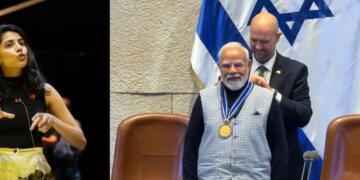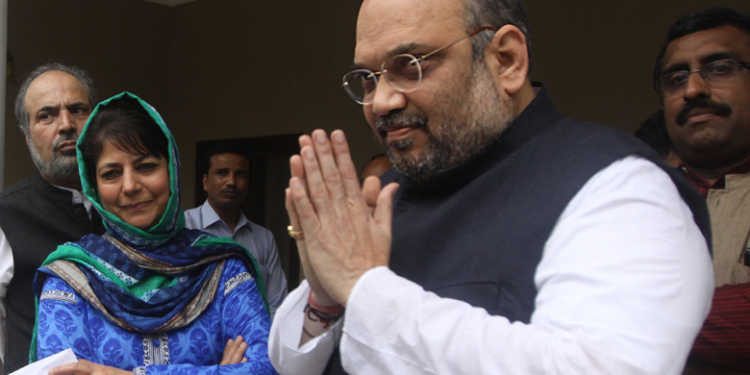The BJP’s decision to end its alliance with the PDP in Jammu and Kashmir has taken everyone and particularly, Mehbooba Mufti led PDP by surprise. There were fundamental ideological differences between the two parties yet the BJP had tried to keep the coalition government in the state going on account of the electoral mandate. A lot is being said about why the BJP might have chosen to end the alliance with PDP but the primary reason behind this major reason seems to be the fact that BJP’s senior leadership has been irked by how Mehbooba Mufti took a soft stance against terrorism in the state. This led to a virtual breakdown in the law and order situation in the state especially in the valley. This seems to have forced the BJP into taking this step.
While calling its partnership with PDP “untenable”, the BJP itself cited a rise in terrorism, violence, radicalization and the killing of journalist, Shujaat Bukhari as the reasons behind its stern decision. In fact, the poor law and order situation in the valley speaks for itself. There was a spate of terror attacks targeting civilian areas under the Mufti government which goes on to show how ineffective she was as far as reining in anti-social elements is concerned. This month itself, there was a terror attack in Shopian when an unidentified person hurled a grenade at security personnel. This resulted in injuries to at least 12 civilians and four policemen. The valley had to brace even more severe terror attacks during her three-year long tenure. How Mufti started engaging with her peace doves in background of Amarnath yatra attack instead of improving the ground situation exposed not only her loose anti-terror policy but also showcased how her attitude was allowing extremism, violence and terror to prevail in the valley with absolute impunity. Even senior police officers could not operate safely during her tenure.
The way 57-year old deputy superintendent of police Ayyub Pandith was mob-lynched in a well planned manner was sufficient to explain the sad and horrifying state of affairs in Kashmir. Similarly, the abduction and brutal killing of Lieutenant Umar Fayaz, a 22-year-old Kashmiri by Hizbul militants indicated that there was no fear or rule of law in Kashmir and the terror organisations were operating in the valley with relative ease. While the central security forces were fighting out the extremist elements at the ground level, the state government was acting in the most inefficient manner. In fact, instead of collaborating with the army and security forces, the Mufti government had involved itself in arm-twisting with the Army by filing an FIR and launching a probe into the Shopian firing incident in January this year.
With every terror attack and resultant breakdown in law and order situation, demands of ending the alliance were growing stronger and it was being strongly suggested that president’s rule be imposed in the state in order to take it out of the turmoil that it was in. However, it was the killing of Shujaat Bukhari that proved to be the last straw. The BJP got completely fed up with the PDP after the journalist was shot dead in the valley. Mufti had been strongly pressing for a unilateral ceasefire by India in order to ensure a “peaceful Ramzan”. However, Ramzan turned out to be scarcely peaceful and ended with the brutal killing of Shujaat Bukhari, chief editor of Rising Kashmir. This open attack on a journalist compelled the BJP into not thinking twice and ending its unnatural alliance with the PDP. In fact, Ram Madhav made it quite clear in citing the BJP’s reasons for ending the alliance that Shujaat Bukhari’s killing proved to be the last straw for the BJP. Mufti was doing what she wanted to and the BJP had no say in governance as was evident from the Kathua fiasco and her insistence on enforcing a unilateral ceasefire during Ramzan. This made it clear that Mufti should be made to suffer for her ineptness and therefore her tenure came to an abrupt end.




























